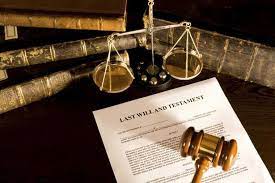Probate law is the process of proving a person’s will in court. Once the will is valid, it becomes an accepted public document. Probate court proceedings are the process by which an estate is settled. It can take months or even years. An estate planning attorney will be able to guide you through the process.
This article will cover the following items that you need to understand when dealing with probate law and trusts.
- Estate planning attorneys
- Wills
- Trusts
- Surrogate’s court
- Executors
- Notice of hearings
- Distribution of assets
Estate planning attorneys
Whether you are a business owner or a family member, retaining an Estate planning attorney with experience in probate law is a great idea. Probate proceedings are public, and creditors and excluded heirs are notified of their right to collect their share of the estate. However, these proceedings can take years to complete. Probate attorneys often charge by the hour, and your case can be complicated if your estate has large assets.
Wills
Probate law for wills is a process used to distribute an individual’s assets after his or her death. In general, the decedent’s will names his or her beneficiaries. Informing these beneficiaries is often an easier process than finding all the creditors, which can be tedious and time-consuming. If the decedent did not leave a will, the process becomes exponentially more difficult.
Trusts
A trust is a legal right to property held in a fiduciary relationship. A trustee holds title to trust property, and the beneficiary receives the benefits of the property. A trust is commonly created as an alternative to a will, or in conjunction with other estate planning elements. Trusts are subject to state laws, which set limitations and frameworks for their validity.
Surrogate’s court
A will is the most common document used in probate law, but a will isn’t the only type of document that needs to be filed in the Surrogate’s Court. In certain cases, an executor may have to file an administration proceeding with the court to determine who will get what. The process of distributing a will depends on how many relatives are living and how close they are to the deceased person. If you’re the closest heir to the deceased, you’ll need to file an Administration Proceeding in the Surrogate’s Court. The Court will then issue you with Letters of Administration, which authorise you to manage the estate in the person’s name.
Executors
Executors are people appointed by a decedent to handle the estate. They hold a high degree of respect and are trusted to handle a wide range of responsibilities. There are many things to consider before you name someone as your executor.
Notice of hearing
Probate law requires the filing of a Notice of Hearing under certain conditions. In some cases, the court may order the Notice to be served on certain persons. This notice will help the parties establish their rights and liabilities.
Distribution of assets
When a person dies and leaves no will, their estate passes to their closest relatives, usually their children and spouse. In some cases, this can be a distant cousin who never met the deceased. A probate lawyer can help you sort out this issue.
Make sure you find probate lawyers in Melbourne who have a clean reputation.

